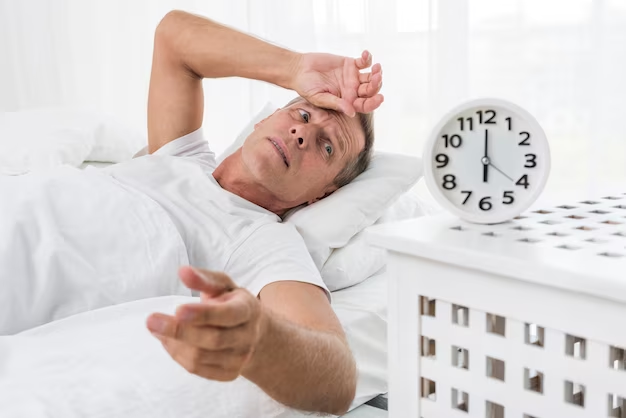Stick to a Consistent Sleep Schedule
To get your sleep schedule back on track, you need to pick a bedtime and wake time and stick to them, even on weekends. This helps establish your body's circadian rhythm and optimize your sleep.
Aim for 7 to 9 hours of sleep per night to feel well-rested. Go to bed and wake up at the same time every day. This means no sleeping in on weekends or staying up late! It will be hard at first, but your body will adjust.
About an hour before bed, start unwinding by limiting screen time and doing relaxing activities like reading, meditation, or light yoga. The blue light from electronics disrupts your circadian rhythm.
Make sure your bedroom is cool, dark, and quiet. Use your bed only for sleep - not for watching TV, using electronics, or doing work. This helps establish the proper sleep-wake association.
Avoid large meals, alcohol, and caffeine for several hours before bedtime. Staying hydrated and avoiding sugary drinks in the evening is also helpful.
If you have trouble falling asleep, try relaxation techniques like deep breathing, progressive muscle relaxation, or a warm bath before bed. The key is making your bedroom as conducive to sleep as possible and developing a calming pre-sleep routine.
Sticking to a regular sleep schedule and optimizing your sleep environment can help reset your body's internal clock. Be patient through the adjustment period. Over time, you'll establish a healthy sleep-wake cycle and finally defeat your insomnia. Sweet dreams!
Limit Screen Time and Blue Light Exposure Before Bed
To get better sleep, limit screen time and blue light exposure before bed. The light tricks your brain into thinking it's daytime, disrupting your circadian rhythm.
Turn off electronics 1 hour before bed. That means no scrolling on your phone, tablet, or laptop. The blue light they emit suppresses melatonin production, the hormone that makes you sleepy.
If you must use electronics at night, enable the night light or blue light filter on your devices. This shifts the screen to a warm, amber glow that has less of an impact on your sleep-wake cycle.
Once the tech is off, avoid overhead lighting where possible. Use a small lamp, string lights, or candlelight instead. Dim light is best for the hour before bed.
Do some relaxing activities to unwind, like reading a book, taking a warm bath, or light stretches. A predictable bedtime routine cues your body and mind that it's time to sleep.
Establishing the right environment and routine before bed has a huge influence on your ability to fall asleep. Make these lifestyle changes and you'll sleep more soundly through the night, waking up feeling refreshed and ready to take on the day.
Practice Relaxation Techniques
To reset your circadian rhythm, try some relaxation techniques before bed to calm your mind and body.
Practice Deep Breathing
Take some deep, slow breaths to help your body relax. Breathe in through your nose and out through your mouth. Make your exhale longer than your inhale. Focus on your breathing and the rise and fall of your chest and belly. Do this for 5 to 10 minutes.
Do Some Light Yoga
Gentle yoga stretches release tension and calm the nervous system. Try cat/cow poses, seated twist, or legs up the wall. Hold each pose for 1 to 2 minutes while breathing deeply. Even just a few basic poses can help shift your mind and body into a relaxed state.
Limit Screen Time
The blue light from electronics suppresses melatonin production and makes it harder to fall asleep. Avoid looking at bright screens, TVs and phones for 1 hour before bed. Do an enjoyable activity like reading a book, taking a warm bath, or journaling instead.
Listen to Relaxing Music
Put on some soft music, nature sounds or a meditation soundtrack. Slow instrumentals, piano, acoustic guitar or ambient electronica work well. Focus on the sounds and let the music relax your mind.
Establishing a calming pre-sleep routine and practicing relaxation techniques in the evening helps reduce insomnia by naturally synchronizing your circadian rhythm. Make relaxation a habit for better sleep and overall wellness. Over time, you'll reset your body's internal clock for the perfect slumber.

